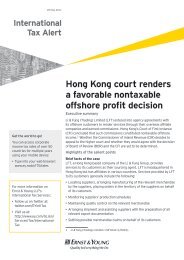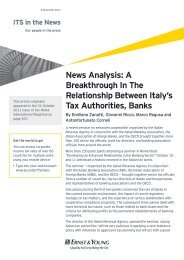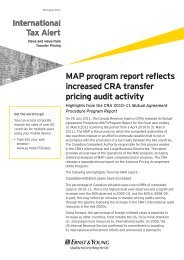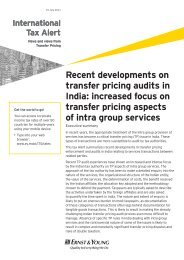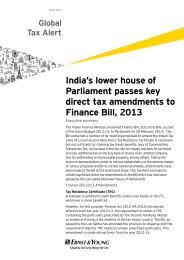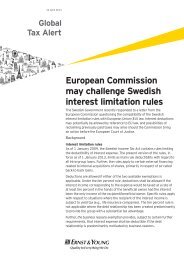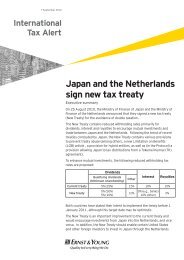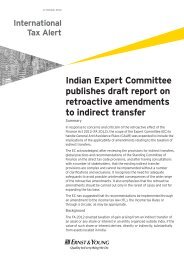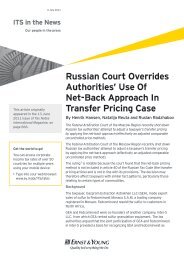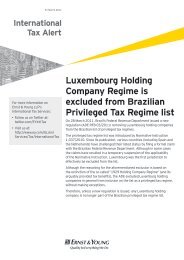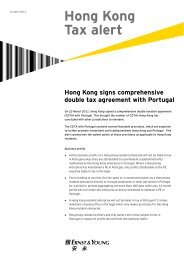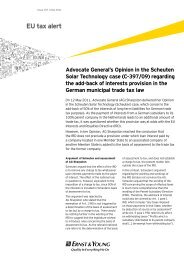(GST) compliance obligations (pdf, 5.62 MB) - Ernst & Young T ...
(GST) compliance obligations (pdf, 5.62 MB) - Ernst & Young T ...
(GST) compliance obligations (pdf, 5.62 MB) - Ernst & Young T ...
Create successful ePaper yourself
Turn your PDF publications into a flip-book with our unique Google optimized e-Paper software.
Living with a<br />
complex world<br />
Improving VAT<br />
<strong>compliance</strong> performance<br />
We asked selected tax directors and VAT managers of<br />
MNEs about their experience of managing multinational<br />
VAT registrations and how they meet their VAT <strong>compliance</strong><br />
<strong>obligations</strong> in today’s complex business environment.<br />
As we have outlined, the multinational VAT <strong>compliance</strong> burden<br />
can weigh heavily on MNEs. Undoubtedly their burden would<br />
be reduced if VAT systems could be simplified and harmonized<br />
across jurisdictions. However, it is also true that many MNEs<br />
could take practical steps to improve their multinational VAT<br />
Insight<br />
VAT and <strong>GST</strong>: multiple burdens for multinational companies<br />
<strong>compliance</strong> performance. In the current <strong>compliance</strong> climate,<br />
MNEs may need to assess their global VAT needs strategically,<br />
while taking local needs into account.<br />
Appropriate measures may include reviewing, modifying<br />
and monitoring VAT <strong>compliance</strong> processes, standardizing<br />
return processes and documentation, increasing automation,<br />
increasing oversight, improving staff training, actively<br />
monitoring VAT changes and outsourcing <strong>compliance</strong><br />
functions.<br />
The Global Indirect Tax Director of a tobacco company with operations in more<br />
than 130 countries:<br />
“The most difficult country for us to deal with overall is Brazil<br />
because of the multiplicity of indirect taxes with a different<br />
interpretation in every state. Having just one legislation and<br />
one interpretation would be a good starting point to making<br />
our lives easier there. The easiest countries for us to deal<br />
with are Germany and the UK. In the UK, it’s because we<br />
have a good relationship with the tax administration built up<br />
over many years.”<br />
“In Germany, it’s because the tax administration is very<br />
straightforward and clear. They do what they say. So even<br />
if we don’t necessarily like what they say, at least we have<br />
certainty about what it is. A good relationship with the<br />
tax administration wherever it may be always helps us to<br />
manage our level of risk properly. If the rules are clear, it’s<br />
easier to understand and apply them correctly.”<br />
28



